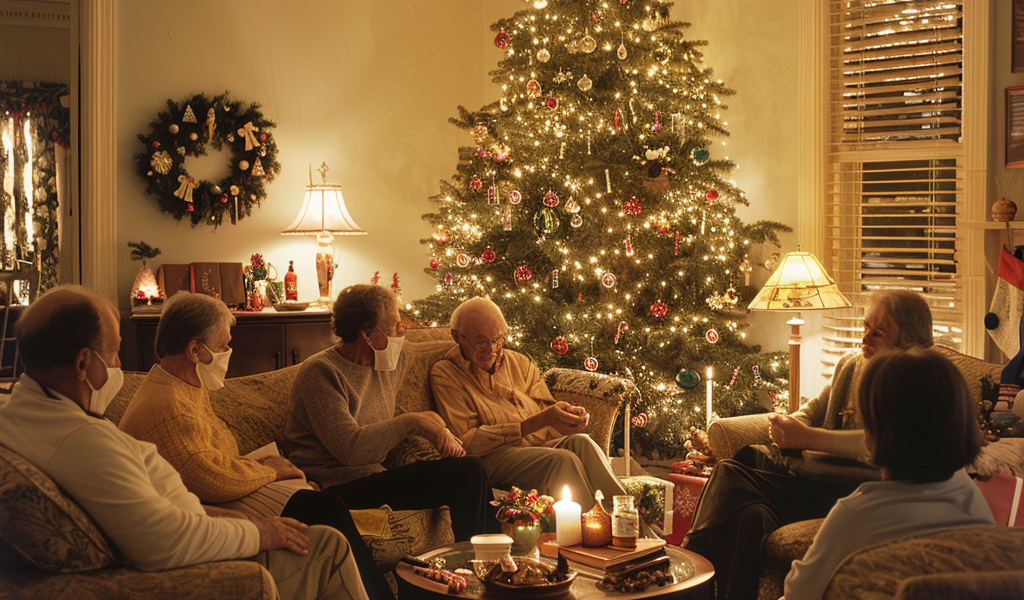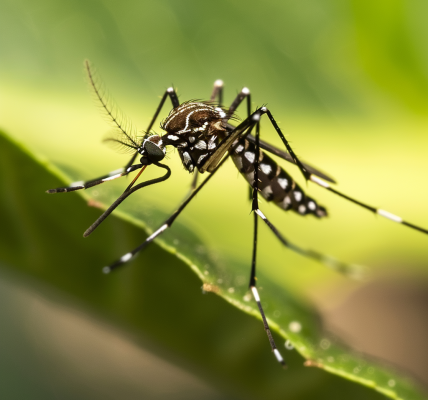The holiday season is upon us, bringing with it the joy of gathering with family and friends. However, as the temperatures drop, the risk of respiratory illnesses such as flu, COVID-19, and RSV tends to rise, particularly for older adults. Health experts emphasize the importance of taking precautions to ensure that everyone can enjoy the festivities safely.
According to Dr. Charlene Wong, a senior advisor for health strategy at the Centers for Disease Control and Prevention (CDC), the holidays can pose significant health risks for older individuals. “Holidays are a time to gather with family and friends, but for older people, this can come with a risk of serious respiratory illness. Getting updated flu, COVID-19, and RSV vaccines can reduce your risk and allow you to enjoy more time together,” she explains.
As families prepare for holiday celebrations, it is crucial to prioritize health and safety, especially for older loved ones. Here are some essential tips to help navigate the holiday season while minimizing the risk of illness:
1. Get Vaccinated Against Respiratory Illnesses
Older adults are particularly vulnerable to severe outcomes from respiratory illnesses. Vaccination is a key tool in protecting against these diseases. The CDC recommends that all adults aged 65 and older receive the updated flu and COVID-19 vaccines. Additionally, there is now an RSV vaccine available, which is advised for individuals aged 75 and older, as well as for those aged 60-74 who have certain health conditions such as heart or lung disease, diabetes, or those residing in nursing homes.
If you are a caregiver, it is essential to encourage older adults to consult with their healthcare providers about the vaccines that are appropriate for them. Staying informed about vaccination options can significantly reduce the risk of severe illness.
2. Gather Safely
Respiratory viruses thrive in indoor environments where people are in close proximity to one another. To mitigate this risk, consider hosting holiday gatherings outdoors if weather permits. If indoor gatherings are necessary, ensure proper ventilation by keeping windows open or using fans. Wearing masks in crowded indoor settings can also be a prudent measure.
In addition to these precautions, practicing good hygiene is vital. Frequent handwashing or using hand sanitizer can help decrease the spread of germs. Encouraging older loved ones to adopt these safety measures will contribute to a healthier holiday environment.
3. Stay Home If You’re Sick
While the desire to participate in holiday festivities is strong, it is crucial to prioritize health. If you or someone in your household is feeling unwell, it is best to stay home. This is especially important for protecting older adults, who may be at higher risk of complications from illnesses like flu, COVID-19, and RSV.
As a caregiver, keep an eye on any respiratory symptoms that may arise in older adults. Testing for flu and COVID-19 can provide clarity and help inform your decisions regarding gatherings. Households across the U.S. can now access four free COVID-19 tests, making it easier to monitor health during the holiday season.
4. Encourage Healthy Habits
In addition to vaccinations and safety precautions, promoting overall health during the holiday season can make a significant difference. Encourage older adults to maintain a balanced diet, stay hydrated, and engage in regular physical activity as appropriate. These habits can help strengthen their immune systems and improve their overall well-being.
Moreover, ensuring that older loved ones get adequate rest and manage stress during the holiday season is essential. The hustle and bustle of the holidays can be overwhelming, so creating a calm and supportive environment can help mitigate anxiety and promote better health.
5. Stay Informed
As the situation with respiratory illnesses can change rapidly, staying informed about local health guidelines and updates is vital. Regularly check for information from health authorities regarding flu, COVID-19, and RSV trends in your area. Being aware of the current situation can help you make informed decisions about gatherings and health precautions.
Ultimately, the holiday season should be a time of joy and connection. By taking proactive steps to protect the health of older adults and those around them, families can enjoy the festivities with peace of mind. The combination of vaccination, safe gathering practices, and healthy habits can create a safer environment for everyone.
By prioritizing health and safety, families can celebrate the season while minimizing the risks associated with respiratory illnesses. Together, we can ensure that this holiday season is memorable for all the right reasons.





